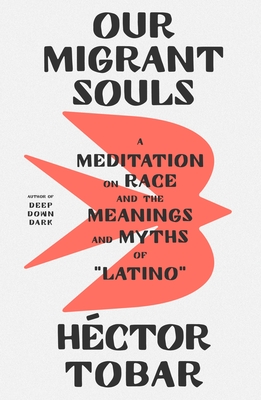Chapter 11: Home
byChapter 11 titled “Home” reflects on the author’s deep connection to literature, family, and identity, beginning with a discussion of James Baldwin’s Go Tell It on the Mountain. Baldwin’s portrayal of Richard, a central character who represents the cultural aspirations of a Black man in 1920s New York, resonates deeply with the author. As Baldwin explores the complex relationship between family and identity, the author reflects on their own experiences of visiting museums with their parents in Los Angeles. The diverse art pieces encountered during these visits sparked a profound sense of belonging, connecting the author to a broader human experience that transcended cultural boundaries. This early exposure to art played a key role in shaping the author’s understanding of identity, highlighting how cultural engagement can foster connection and empathy across different communities.
The author then delves into the immigrant experience, discussing the desire to assert one’s humanity in a new country built on ideals of freedom and justice. Growing up with parents who instilled a love of reading and an appreciation for culture, the author reflects on how these values shaped their personal narrative. The influence of these formative years helped develop a lasting passion for the arts and culture, creating a bridge between their family’s history and their own future. These experiences formed the foundation of the author’s identity, nurturing a connection to broader themes of cultural resilience and the transformative power of education. The importance of family in shaping identity is emphasized, particularly within the context of the immigrant experience, showing how parents’ support in cultivating intellectual curiosity can positively impact one’s future.
The narrative transitions to the author’s encounters with diverse individuals across the United States, further exploring the complexities of Latino identity. These interactions with activists and artists, such as Teresa Alonso León, an advocate for her Indigenous heritage, illustrate the intertwined histories of Mexican, Latino, and Indigenous peoples in America. The author reflects on how these encounters reveal the broader societal struggles faced by Latino communities, specifically in navigating both systemic racism and the aspirations for acceptance. Through these stories, the author underscores the complexities of identity shaped by heritage, history, and community, shedding light on the resilience and unity within the Latino experience. These encounters also highlight the interconnectedness of cultural identities in a multicultural society, where different histories and experiences blend to form a collective narrative of resistance and empowerment.
As the chapter progresses, the author recounts their travels, sharing stories of individuals like Andrew Alba, whose artistic expression shapes his identity, and Gustavo, a Mexican immigrant whose resilience in the face of being undocumented is a testament to his strength. These personal stories showcase the diversity of the Latino experience, offering insights into the challenges of migration, identity, and survival. The author emphasizes how art, culture, and individual expression serve as tools for self-definition and survival in marginalized communities. By sharing the stories of Gustavo and Andrew, the author demonstrates how resilience and cultural expression intersect within the broader context of the Latino immigrant experience in the United States. These stories, full of struggles and triumphs, reflect the ongoing journey of identity formation amidst adversity, and serve as powerful examples of how individuals assert themselves and navigate their place in American society.
The chapter concludes with a meditation on family, identity, and the search for belonging, brought into focus through Claudia’s experience navigating family dynamics in Harrisburg. The importance of familial support and togetherness in a foreign land is central to the narrative, as the author reflects on how families play a crucial role in shaping identity and offering emotional sanctuary. The theme of home is explored, not just as a physical space but as an emotional and cultural anchor that binds individuals to their roots. This reflection on home, shaped by shared histories, experiences, and aspirations, underscores the complex nature of belonging and identity within the immigrant experience. The chapter emphasizes how familial ties and a collective sense of history provide strength and comfort, enabling individuals to navigate the challenges of a new country while preserving their cultural legacy. This theme of home as both a physical and emotional space resonates deeply throughout the chapter, emphasizing the power of family in navigating the complexities of identity and belonging.

